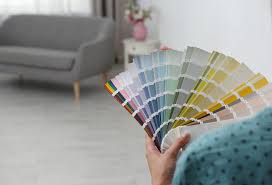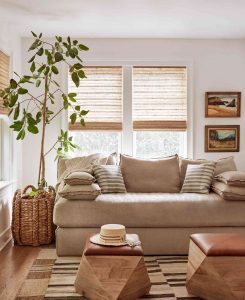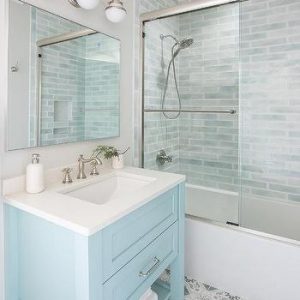Social Links Widget
Click here to edit the Social Media Links settings. This text will not be visible on the front end.
Transform Your Space: The Power of Color Psychology in Interior Design

Color plays a crucial role in our lives, influencing our emotions, behaviors, and even our perceptions. In the realm of interior design, understanding color psychology can help you create spaces that not only look beautiful but also feel harmonious and serve their intended purposes. Let’s explore how different colors affect mood and ambiance, and provide guidance on choosing the right colors for various rooms in your home.

The Basics of Color Psychology
- Warm Colors: These include reds, oranges, and yellows. They are stimulating, energetic, and can make a space feel cozy and inviting.
- Cool Colors: These include blues, greens, and purples. They tend to have a calming, soothing effect and can make a space feel more spacious and serene.
- Neutral Colors: These include whites, grays, and beiges. They are versatile, timeless, and can serve as a perfect backdrop for other colors.
Choosing Colors for Different Rooms
1. Living Room: Warm and Welcoming 
The living room is a social hub where people gather, so it’s important to create a warm and inviting atmosphere.
Best Colors: Warm shades like soft yellows, warm neutrals, and muted reds or oranges.
Why: These colors can promote conversation and make the space feel cozy and welcoming.
Tips: Combine warm colors with neutral tones to balance the energy and avoid overwhelming the space.
2. Kitchen: Energetic and Fresh
Kitchens are often bustling spaces where people cook, eat, and socialize. Bright, energetic colors can stimulate appetite and activity.
Best Colors: Bright whites, yellows, greens, and even bold reds. 
Why: These colors can make the space feel lively and vibrant, encouraging creativity and social interaction.
Tips: Use bold colors for accents, such as backsplashes or cabinetry, while keeping larger areas in lighter, more neutral tones to avoid overstimulation.
3. Bedroom: Calm and Relaxing
Bedrooms are personal sanctuaries where we rest and recharge. Calming colors are essential to create a peaceful environment.
Best Colors: Soft blues, greens, lavenders, and cool neutrals.
Why: These colors have a soothing effect, promoting relaxation and restful sleep.
Tips: Choose muted shades and avoid overly bright or dark colors that can be jarring or oppressive.
 4. Bathroom: Clean and Tranquil
4. Bathroom: Clean and Tranquil
Bathrooms should feel clean and refreshing. Cool, light colors can enhance the sense of cleanliness and tranquility.
Best Colors: Light blues, soft greens, crisp whites, and pale grays.
Why: These colors evoke a sense of cleanliness and calm, making the bathroom a relaxing retreat.
Tips: Use whites and light colors for fixtures and tiles, adding touches of soft colors in accessories and decor.
5. Home Office: Productive and Focused
A home office should promote concentration and productivity. Balanced, neutral tones with touches of color can create an optimal work environment.
Best Colors: Neutral shades like grays and whites, with accents of blues or greens.
Why: Neutrals provide a professional backdrop, while blue and green accents can enhance focus and reduce stress.
Tips: Avoid overly bright colors that can be distracting. Instead, use calming accents to maintain a balanced atmosphere.
6. Dining Room: Social and Comfortable
Dining rooms are spaces for gathering and enjoying meals together. Warm, inviting colors can enhance the dining experience.
Best Colors: Rich reds, warm neutrals, and earthy tones.
Why: These colors stimulate appetite and conversation, creating a welcoming environment for dining.
Tips: Use warm colors on walls or as accent pieces, combined with neutral furnishings to maintain balance.
Final Thoughts
Understanding color psychology can transform your home into a series of spaces that not only look beautiful but also feel perfectly suited to their functions. By choosing colors that align with the desired mood and purpose of each room, you can create an environment that supports your lifestyle and enhances your well-being. Experiment with different shades, consider the natural light in each room, and don’t be afraid to mix and match to find the perfect palette for your home. Happy decorating!

 Facebook
Facebook
 X
X
 Pinterest
Pinterest
 Copy Link
Copy Link





